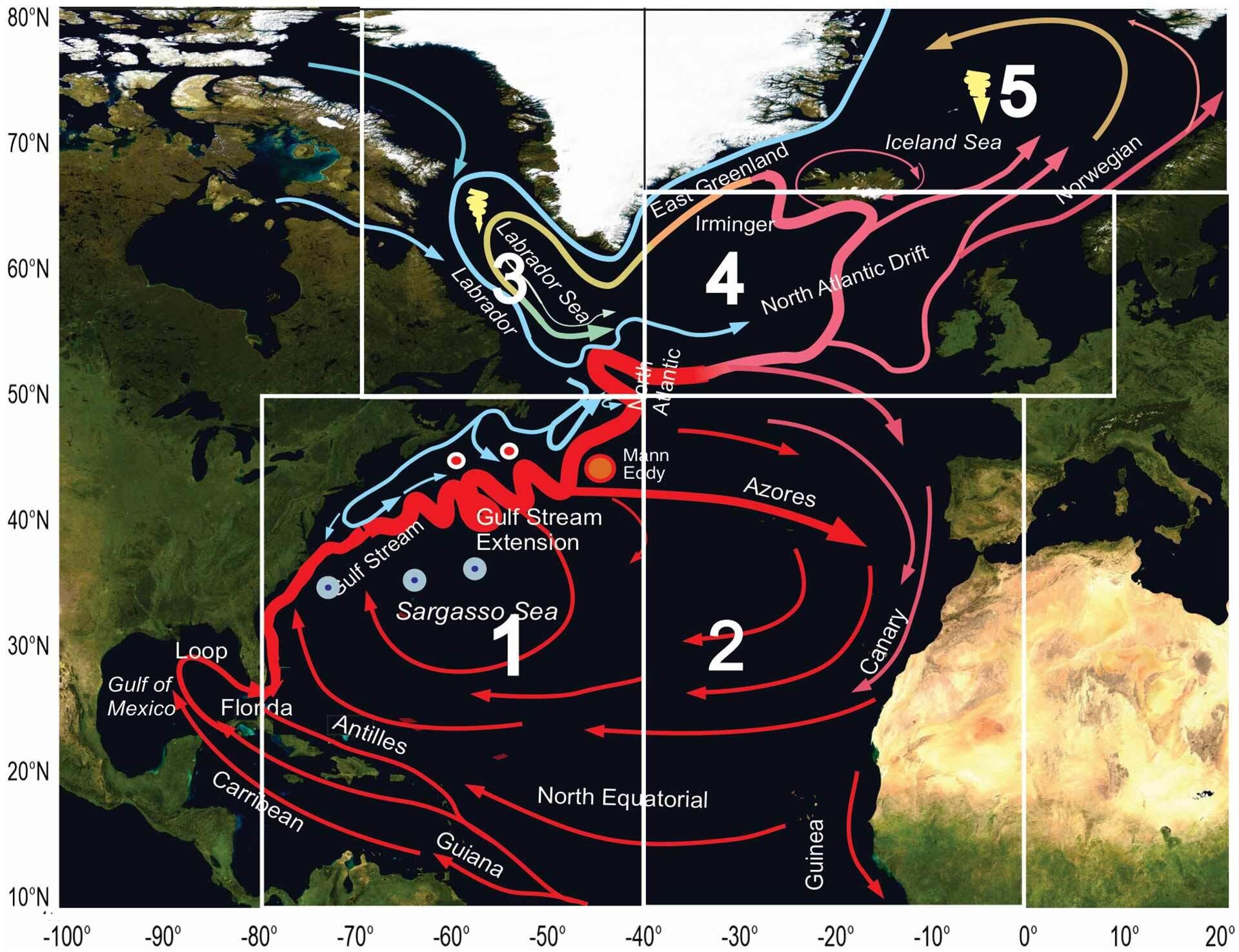Significant slowdown of major ocean currents: severe repercussions?
Follow us on Google News (click on ☆)

Diagram of the North Atlantic Ocean surface circulation. Warm currents are shown in red, cold currents in blue.
The numbered white frames from 1 to 5 indicate five analysis areas where temperature, salinity, and current speeds have significantly changed.
Credit: Frontiers in Marine Science (2024).
In their study, published in Frontiers in Marine Science, the scientists analyzed data spanning several decades, provided by the World Atlas of Oceans from the National Oceanic and Atmospheric Administration (NOAA). These data concern the Atlantic Meridional Overturning Circulation (AMOC), a system of currents, including the Gulf Stream, crucial for the redistribution of heat in the oceans.
Their research shows that until 1994, the AMOC remained stable but began to weaken in the mid-90s. This decrease in speed is attributed to the continuous warming of the ocean surface and changes in salinity in their upper layers. A slowdown of the AMOC means a reduction in thermal exchanges between the oceans and the atmosphere, potentially leading to warming of warm regions and cooling of cold areas, with potential impacts on the global climate, sea-level rise, and marine ecosystems.
This study highlights the significance of the AMOC in regulating the Earth's climate. While the catastrophic scenario depicted in the movie "The Day After Tomorrow," with a sudden stop of ocean currents, is considered pure fiction by the scientific community, the authors of the study emphasize that the consequences of a significant slowdown of the AMOC could be considerable and unpredictable.
The data analysis from the North Atlantic also unveils a complex regional climate variability, with changing temperatures and salinities over the decades, underlining the necessity of a deep understanding of these dynamics to predict the climate's future.
The research team plans to extend their study to other regions of the global oceans to better understand the long-term variations in temperature and salinity and their impact on ocean currents.